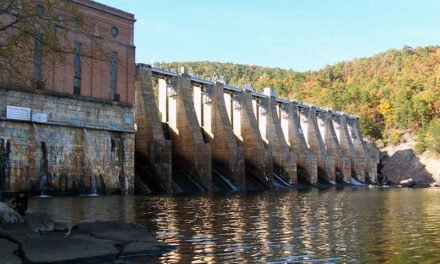Landmark Decision: Montana Court Backs Youth Activists for Clean Environment
In a groundbreaking legal victory, young environmental activists in Montana have secured a significant win as a state judge ruled that agencies were violating their constitutional right to a clean and healthful environment by allowing fossil fuel development. This historic trial marks a turning point in the battle against climate change and sets a potential global precedent.
Setting a Legal Precedent
The recent court ruling in Montana is a notable addition to a small but influential collection of legal judgments worldwide that highlight governments’ responsibility to safeguard their citizens from the effects of climate change. This decision could pave the way for similar cases across the globe, though immediate changes might be restrained due to potential appeals.
A Constitutional Challenge
Judge Kathy Seeley of the District Court deemed the policy employed by the state to evaluate fossil fuel permit requests unconstitutionally. The policy, which overlooks greenhouse gas emissions, has been criticized for neglecting a significant factor in climate change. Notably, this marks the first instance in the U.S. where a court has found a government accountable for infringing on a constitutional right due to climate concerns.
Climate Impact Acknowledged
The court decisively rejected the state’s claim that Montana’s emissions held little sway in the climate crisis. Instead, Judge Seeley affirmed that these emissions are indeed a substantial contributor to climate change. As a state with substantial coal and oil reserves, Montana’s role in exacerbating climate issues is evident.
Challenges on the Horizon
While the court’s ruling carries immense significance, immediate changes hinge on legislative actions. Montana’s lawmakers must now recalibrate policies to align with the court’s decision, a process that might encounter obstacles in a state where fossil fuel interests are robust, and Republican voices dominate the political arena.
National and Global Implications
Comparatively few states, including Pennsylvania, Massachusetts, and New York, possess constitutions that provide similar environmental protections. This ruling, while potentially encouraging other cases aiming to establish environmental rights, mainly offers moral support to such initiatives.
Voices of the Youth
The lawsuit was backed by young activists who recognized the dire impacts of climate change on their futures. One of the plaintiffs, Claire Vlases, noted the helplessness felt by many young people when it comes to confronting climate challenges. She expressed hope that Montana’s lawmakers would respect the state’s constitution and the court’s ruling, thus creating a legacy for generations to come.
Dissent and Disagreement
The state’s reaction to the ruling has been divided. Montana’s Attorney General, Austin Knudsen, expressed intentions to challenge the decision through an appeal. Emily Flower, the spokesperson for Knudsen’s office, criticized the ruling and described it as an “absurd” endeavor.
Presenting the Case
During the two-week trial, the plaintiffs, ranging in age from 5 to 22, presented compelling evidence that increasing carbon dioxide emissions are driving adverse weather conditions, including hotter temperatures, more droughts, wildfires, and reduced snowpack. These changes have had tangible negative effects on their mental and physical well-being, posing a threat to agriculture, fish, wildlife, and recreational activities.
The Counterargument
Montana’s state officials argued that even if the state were to cease carbon dioxide production, the global nature of the climate crisis would render such efforts ineffective. However, Judge Seeley critiqued the state’s stance, emphasizing the lack of a compelling reason to disregard greenhouse gas emissions when evaluating policy decisions.
A Future-Oriented Case
Our Children’s Trust, a non-profit organization, has championed this cause and raised substantial funds for state and federal lawsuits. This case exemplifies the power of collective action and strategic legal efforts in combating climate change.
Climate Realities
Carbon dioxide emissions, released through the burning of fossil fuels, play a pivotal role in trapping heat in the atmosphere. This spring, carbon dioxide levels reached their highest point in over four million years, underscoring the pressing need for action to mitigate global warming.
Conclusion
July’s record-breaking heat and escalating climate challenges underscore the urgency of addressing environmental issues. The Montana ruling serves as a testament to the power of young voices advocating for a cleaner and healthier world. While immediate policy changes might be gradual, this decision’s ripple effect could reshape the landscape of environmental rights and responsibilities, heralding a more sustainable future for generations to come.










